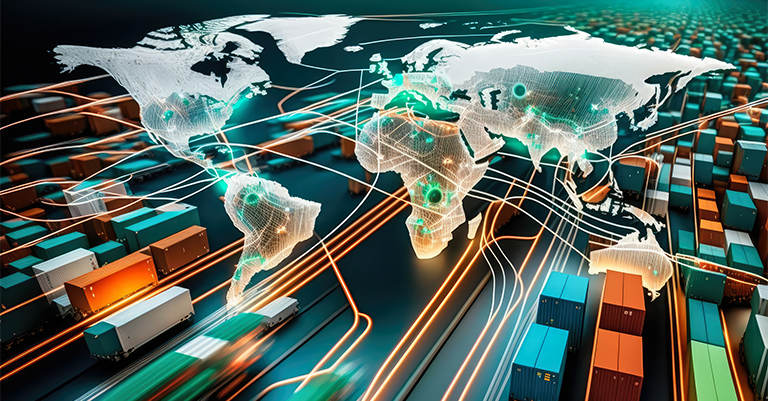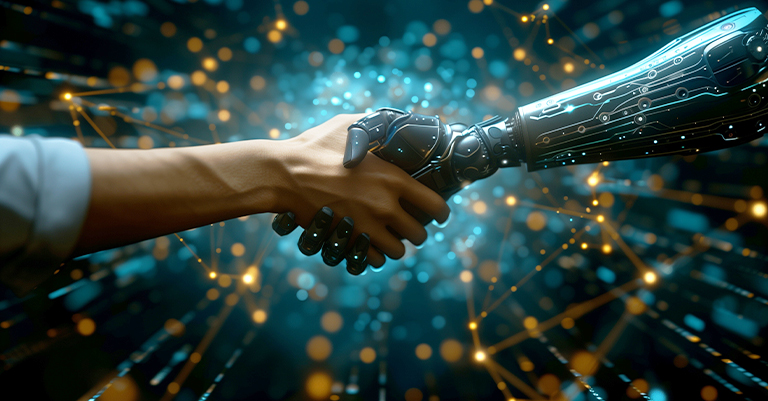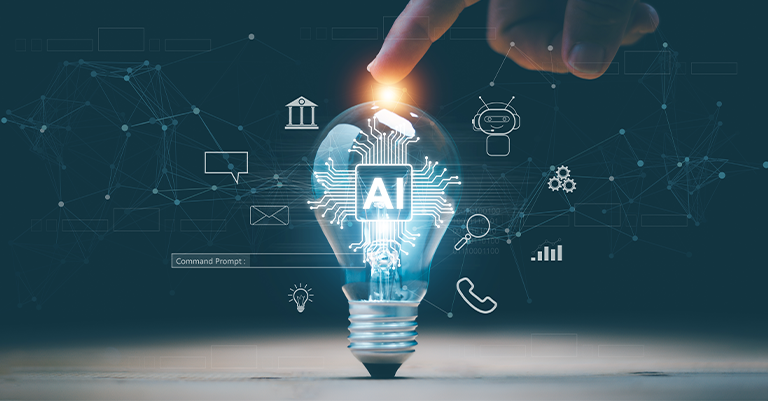AI-Driven Supply Chains: Discover the Future of Logistics
The logistics industry is evolving fast, and artificial intelligence (AI) is at the heart of this transformation. AI-driven supply chains create smarter, more efficient systems that benefit businesses and consumers. By integrating AI into logistics, companies are making better decisions, automating processes, and improving accuracy.
Let’s explore how AI is shaping the future of logistics and what businesses can expect in the years to come.
How AI is Transforming the Supply Chain Industry
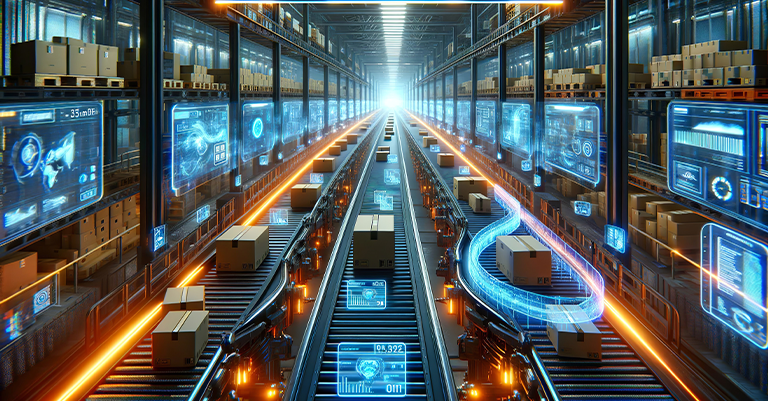
AI is revolutionizing the supply chain industry by introducing advanced tools that make processes faster and smarter. Traditional supply chains involve a lot of human intervention, which can slow things down and lead to mistakes. AI changes that by using data to optimize operations, reduce errors, and increase efficiency.
AI helps companies predict demand better, manage their inventory with more accuracy, and make decisions that improve customer satisfaction. When AI is used, logistics processes can run more smoothly, which means goods are delivered on time, and costs are reduced.
Smarter Decision-Making with AI
One of the biggest benefits of AI in the supply chain is smarter decision-making. AI systems analyze large amounts of data in seconds, giving businesses the insights they need to make quick, informed decisions. AI can predict trends, foresee risks, and suggest the best actions to minimize problems. By automating this part of the process, businesses can avoid costly mistakes and keep their supply chain running smoothly.
Automated Systems for Better Efficiency
AI-driven systems can automate repetitive tasks like sorting and tracking shipments. This means that workers can focus on more important tasks while AI handles the routine work. Automation also leads to fewer errors and faster processes, which can save companies time and money. With AI, businesses can move goods faster, making the supply chain more efficient from start to finish.
Benefits of AI-Driven Supply Chains
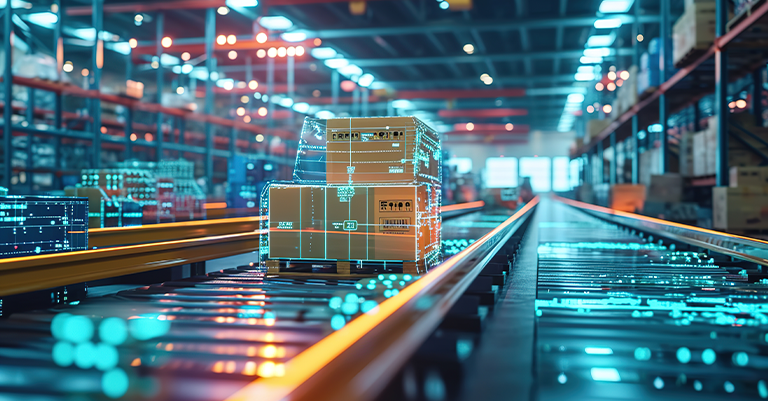
AI technology offers many benefits for supply chain management. From reducing costs to improving efficiency, AI is helping companies meet the demands of today’s fast-paced world. It allows businesses to keep up with changing customer expectations and streamline their operations.
AI-powered tools can process large volumes of data, which can lead to more accurate forecasts and better decision-making. These tools help businesses keep their supply chains flexible and resilient, ensuring that they can adapt to any changes in demand or supply.
Enhanced Accuracy and Predictability
AI systems help businesses predict customer demand with impressive accuracy. By analyzing past data and trends, AI forecasts future needs, allowing companies to stock the right products at the right time. This reduces the chances of overproduction or understocking, cutting down on waste and improving efficiency. When businesses can anticipate customer preferences, they manage their inventory better and minimize losses. Accurate predictions not only optimize stock levels but also ensure customers receive the products they need, improving overall satisfaction and reducing costs.
Real-Time Monitoring and Updates
AI offers real-time tracking for shipments, giving businesses up-to-date information on their supply chain. If a disruption, such as a delay, occurs, AI systems immediately alert managers, allowing them to find quick solutions. This proactive approach helps companies avoid bigger issues by making adjustments on the spot. Real-time data ensures that supply chain operations run smoothly and that goods are delivered on time. This constant flow of information helps companies stay responsive to changes and keeps customers satisfied with accurate, timely updates.
Improved Supplier Relationship Management
AI improves supplier relationships by analyzing data to identify risks and potential disruptions in the supply chain. When delays or quality issues arise, AI notifies businesses, helping them address problems before they escalate. AI also streamlines contract management, payments, and deliveries, making it easier for companies to monitor supplier performance. By tracking how well suppliers meet agreed-upon standards, businesses can foster trust and ensure consistency. This improved communication and efficiency lead to stronger supplier partnerships and a more reliable supply chain.
Personalized Customer Experiences
AI enables businesses to create tailored experiences for customers by analyzing shopping patterns and predicting individual preferences. AI can recommend products based on previous purchases or suggest customized delivery options, ensuring that customers receive services that meet their needs. Real-time data also provides accurate delivery estimates, offering greater transparency and building customer trust. By personalizing services and improving delivery accuracy, AI enhances customer satisfaction, boosts loyalty, and helps businesses stand out in a competitive market.
Future Trends in Logistics with AI-Driven Supply Chains
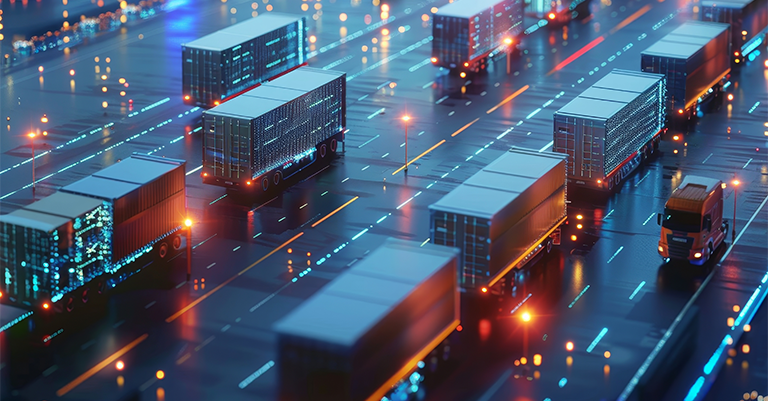
As AI continues to evolve, new trends are emerging in the logistics industry. These trends point to a future where supply chains are even more efficient and sustainable. AI will enable technologies like autonomous vehicles, drones, and robotic warehousing, pushing logistics to the next level.
Autonomous Vehicles in Logistics
Autonomous vehicles, such as self-driving trucks, will soon become a major part of logistics. These vehicles can operate without human drivers, which reduces labor costs and minimizes human error. They can also work around the clock, delivering goods faster and more efficiently. As this technology becomes more widespread, we can expect faster delivery times and lower transportation costs.
The Role of AI in Sustainability
Sustainability is becoming a big concern for companies, and AI can help make supply chains greener. AI systems can optimize routes to save fuel, reduce carbon emissions, and cut down on waste. Businesses are also using AI to monitor their environmental impact and make adjustments that promote sustainability throughout their operations.
AI-Powered Robotics in Warehousing
AI-powered robots are quickly becoming a key part of warehouse operations. These robots can handle tasks like sorting, packing, and moving goods without human intervention, reducing labor costs and minimizing errors. They can operate continuously, increasing productivity and speeding up warehouse processes. As this technology becomes more widespread, businesses can expect faster, more accurate handling of goods and lower operational costs. With AI-driven robots taking on repetitive tasks, warehouses will run more smoothly, ultimately boosting overall supply chain efficiency.
Challenges to Adopting AI-Driven Supply Chains
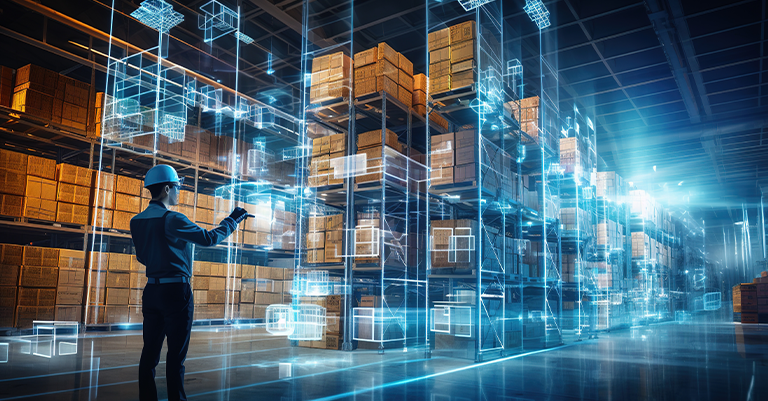
While AI offers many benefits, there are still challenges to adopting it fully in supply chains. Businesses need to address these obstacles to enjoy AI’s full potential. Some companies face issues with data security, while others struggle with the high cost of implementing AI solutions.
Data Security and Privacy Concerns
AI systems depend on vast amounts of data, much of which can be sensitive or private, including customer information, financial records, and proprietary business data. Handling this data introduces significant security challenges. Cyberattacks, data breaches, or improper handling of personal information could lead to financial losses, legal consequences, and damage to a company’s reputation. To protect themselves, businesses need robust cybersecurity measures such as encryption, secure networks, and regular security audits. Additionally, companies must comply with data protection regulations like GDPR or CCPA, ensuring that customer data is handled responsibly and transparently while maintaining trust.
Cost and Implementation Barriers
The cost of adopting AI technology can be daunting, especially for smaller companies with limited budgets. High upfront costs include not only purchasing AI tools but also upgrading existing infrastructure to support them. Businesses also need to consider ongoing expenses such as system maintenance and hiring or training staff to manage AI-driven processes. Additionally, integrating AI into legacy systems can be complex and time-consuming, often requiring expert consultants. To justify the investment, companies must carefully assess the potential long-term savings, increased efficiency, and competitive advantages that AI could bring to their supply chain operations before making the leap.
Skill Gaps in the Workforce
AI technology requires specialized knowledge in areas such as machine learning, data analysis, and AI system management. Many businesses struggle to find employees with the necessary skills to implement and maintain AI-driven solutions. This shortage of expertise can delay AI adoption and increase training costs. Companies may need to invest in upskilling their current workforce or hire new talent with experience in AI, both of which can be expensive and time-consuming. Smaller businesses, in particular, face challenges in competing for top talent, which puts them at a disadvantage when trying to implement AI in their supply chains.
Resistance to Change
Adopting AI in supply chain operations can face internal resistance from employees who are used to traditional workflows. Workers may fear that automation could make their roles obsolete or dramatically change their daily tasks, leading to uncertainty and pushback. This resistance can slow the transition to AI-driven systems, reducing the overall efficiency of the change process. To overcome this challenge, businesses must focus on educating their staff about the benefits of AI, such as how it can streamline their work and create new opportunities. Building a culture that encourages innovation and supports employees through the transition is essential.
Closing Thoughts: Embracing AI-Driven Supply Chains
AI is transforming logistics in ways that were unimaginable just a few years ago. By automating tasks, optimizing routes, and providing real-time insights, AI is making supply chains more efficient, flexible, and sustainable. These improvements help businesses reduce costs, enhance customer satisfaction, and respond quickly to changing market demands.
While the journey to fully integrating AI comes with challenges—such as high costs, data privacy concerns, and the need for specialized skills—the benefits far outweigh the hurdles. Businesses that invest in AI now are setting themselves up for long-term success. They’ll be able to operate faster, reduce waste, and make smarter decisions that keep them competitive in an increasingly complex global market.
The future of logistics is undeniably AI-driven. As AI continues to evolve, companies that embrace this technology will be at the forefront, delivering smarter, faster, and greener supply chains. Those who hesitate risk falling behind. The time to adopt AI is now, and the businesses that take the lead will be the ones shaping the logistics landscape of tomorrow.


